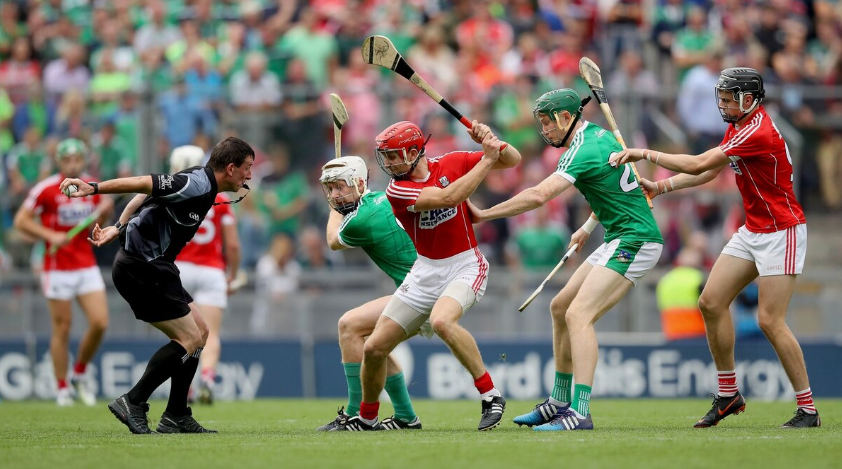The annual tournament, Féile na nGael, also known as the “Festival of the Gaels,” is a highly anticipated event that showcases the vibrant culture and sportsmanship of the Gaelic games. Organized by the Gaelic Athletic Association, this grand celebration brings together communities to participate in the traditional sports of hurling, camogie, and handball. The tournament serves as a platform to foster strong bonds within the Gaelic games community, provide educational opportunities, and discover emerging leaders. Féile Na NGael Competition is a lively and cherished event, serving as a vibrant celebration of youth hurling, camogie, and Gaelic football in Ireland.
The festival is an important and beloved cultural and sporting event in Ireland, deeply rooted in the tradition and history of the country. Every year, it attracts enthusiastic young participants from various regions, providing them with a wide-ranging and immersive schedule of activities. These activities include traditional Irish music and dance, captivating theatrical performances, and a variety of exhilarating sports competitions. The festival truly offers something for everyone and has become a cherished event for the Irish people.
The annual celebration has a rich and long-standing history that dates back through numerous generations, playing a crucial role in fostering and preserving the Irish language and culture, particularly among the younger generation. Additionally, it serves as a significant platform to emphasize the festival’s contribution to building a strong community, encouraging sportsmanship, and supporting the holistic personal development and growth of the participating youth.
Origins and Heritage
The Féile na nGael festival has a captivating history that originates from the early 1970s. It has evolved over the years to become a significant cultural and community event, celebrating the Irish language, music, dance, and traditions. The event was established with the explicit objective of encouraging and honoring the involvement of young individuals in Gaelic games. Its primary aim was to provide a stage for up-and-coming athletes to showcase their skills, while also nurturing their abilities and nurturing enduring relationships with peers from various counties and communities.

The phrase “Féile na nGael” is rooted in the Irish language, with “féile” signifying a festival or celebration. This term perfectly captures the spirit of unity, inclusiveness, and enjoyment that lies at the core of Gaelic games. The Gaelic Athletic Association (GAA), serving as the governing body for Gaelic sports, is deeply devoted to nurturing the growth of young athletes. It cultivating a culture of continuous advancement and love for these sports. The Féile na nGael competition presents a significant platform for young players to exhibit their talents. Sportsmanship within the Gaelic games community fosters a sense of pride and accomplishment among participants.
Format
Féile na nGael is a highly anticipated and inclusive sporting extravaganza that unites young boys and girls from various countries and clubs. All over Ireland take part in competitive tournaments for hurling, camogie, and Gaelic football. This eagerly awaited event welcomes diverse age groups, spanning from under 14 to under 16. It typically spans a weekend or even multiple days, offering an extended period of thrilling sporting action and camaraderie.
The format of Féile na nGael emphasizes broad participation, skill development, and the promotion of sportsmanship. It places a strong emphasis on fair play and respect for all competitors. It provides a platform for young players to showcase their talents and relish the opportunity to represent their clubs and counties. On a significant stage, engaging in matches characterized by a spirit of camaraderie and friendly competition.
The typical format of Féile is as follows: In some exceptional cases, the number of people in a gathering may be inconsistent. Each Division is subdivided into four groups, with each group consisting of four teams. Every group competes against the other teams within the same gathering. In the scoring system, teams are awarded two points for a win, one point for a draw, and zero points for a loss. Following the conclusion of the group stage, the top four groups in each division advance to the semi-finals.
Competition
The culmination of the competition will see the two most successful teams pitted against each other in the final round. Each game is divided into two halves, with each half lasting twenty minutes instead of the usual thirty. Typically, teams embark on their festival journey by playing their first game on Friday afternoon. Which marks the official start of the festival.
After the opening ceremony, there will be a colorful procession for all participating groups. They march through the main streets of the district, showcasing their unique traditions and costumes. On Saturday morning, all groups will engage in two additional gathering games, adding to the festive atmosphere. The excitement continues into the night with the highly anticipated semi-final matches. Finally, on the celebratory Sunday, the host province will hold the finals in the grand GAA stadium. Which provides a thrilling conclusion to the event.
Successful clubs
The individual with the most title wins in the hurling championship is James Stephens, hailing from Kilkenny. His remarkable record includes securing the title an impressive seven times, with his most recent victory achieved in 2008. Meanwhile, the hurling team Na Piarsaigh, rooted in Cork, boasts an exceptional track record with an impressive 22 victories. In the Féile na nGael championship, their most recent triumph took place in 2021.
The Glen Rovers team has clinched the championship title an impressive 5 times. When it comes to championship success, Cork clubs have dominated with a total of 14 titles. Meanwhile, the Kilkenny Eleven, as well as clubs from Limerick, Clare, and Dublin, have each secured three titles. In addition, Kevin Lynch H.C from Derry has an outstanding record, triumphing with 7 Feile na Gael titles across various divisions.
In the sport of camogie, the Oulart the Ballagh club from Wexford showcased an incredible display of skill and determination. Achieving an unprecedented level of success by securing five consecutive Féile na nGael championships from 1998 to 2002. Their remarkable performance on the field captured the attention of fans and fellow competitors alike. Similarly, the team from Douglas in Cork demonstrated a dominant and relentless approach, securing three championships from 2004 to 2006. Their consistent and exceptional performance solidified their reputation as a formidable force. In the competition, setting a new standard for excellence in camogie.
In terms of camogie districts, Galway has established itself as a standout. Which has an impressive record with the highest number of wins, totaling nine championship titles. Following closely behind, both Dublin and Cork have demonstrated their prowess in the sport with seven championships, each. Additionally, Wexford clubs have also left their mark by securing the championship six times. This showcases their strength and competitive spirit in the realm of camogie.
Significance and Impact
Féile na nGael holds a special place in the hearts of young players as it offers them a unique platform to demonstrate their abilities. In the midst of formidable opponents, fostering an atmosphere where they can craft enduring memories. Moreover cultivates new and meaningful friendships. This event not only serves as a showcase for talent but also as a catalyst for instilling a profound sense of pride and camaraderie within clubs and communities. It promotes the values of teamwork and unwavering dedication. Which indomitable resilience among all participants, leaving a lasting impact on everyone involved.
Féile na nGael is an important event that serves as a crucial platform for identifying and nurturing talent within the realm of Gaelic games. It plays a pivotal role in providing a stage for acknowledging and fostering the skills of young athletes. The event attracts scouts and coaches who carefully assess and analyze the performance and potential of these budding players. Which with an eye toward identifying those who exhibit promise for achieving success at more advanced levels of competition.
Féile na nGael holds a significant place in the history of Irish sports, having played a pivotal role. It is shaping the careers of numerous distinguished hurlers, camogie players, and Gaelic footballers. This esteemed and highly anticipated event has continually served as a pivotal platform for fostering and honing the skills of budding athletes. While also highlighting its substantial impact on the dynamic and thriving sports landscape of the nation.
Community Spirit and Legacy
The Féile na nGael festival encapsulates the essence of community and volunteerism that the GAA deeply roots in its culture. It also highlights the significant impact of the event on the world of sports. The prosperity of this festival relies heavily on the steadfast dedication and relentless hard work of a substantial number of volunteers. Their coaches and organizers collaborate harmoniously to ensure its flawless implementation, year after year. Their unwavering commitment and ceaseless effort serve as the linchpin behind the festival’s sustained triumph.
The impact of Féile na nGael reaches well beyond the boundaries of the sports field, creating a profound and enduring influence on individuals and communities throughout Ireland. The Gaelic games have a unique capacity to cultivate lifelong connections and friendships among participants. The program crucially impacts the creation of long-lasting connections between different clubs and counties. It nurtures a profound sense of admiration and passion for the sport that people pass down through the generations.
Conclusion
In conclusion, Féile na nGael stands as a powerful testament to the enduring legacy and cultural significance of Gaelic games in Ireland. The event not only showcases the excellence of young athletes but also underscores the values of community. It is teamwork, and skill development championed by the GAA. Féile na nGael is an event that seeks to honor and promote the involvement of young people while also fostering their talents and skills. By doing so, the event aims to instill in them a profound respect and understanding of the extensive history and cultural significance of Gaelic sports. It provides an uplifting and influential stage that encourages young athletes. Finally to commit themselves to refining their abilities and embracing the ethos of companionship within the Gaelic games community.
The continuous success and progress of Féile na nGael stand as a remarkable testament to the enduring resilience and adaptability of Gaelic games. This not only sustains the popularity of these games but also guarantees their preservation for many generations, allowing future enthusiasts to cherish and actively participate in them. The enduring prosperity and development of Féile na nGael truly highlights the rich tradition and lasting appeal of Gaelic games.
The gatherings, such as matches, tournaments, and cultural events, play a crucial role in preserving the rich heritage of Gaelic games. They provide a valuable opportunity for players and fans to come together and foster a deep passion. It is enthusiasm for the sport. These events are a fundamental cornerstone in maintaining the spirit and energy of Gaelic games. It ensures that they remain a cherished and integral part of the cultural fabric for generations to come.
